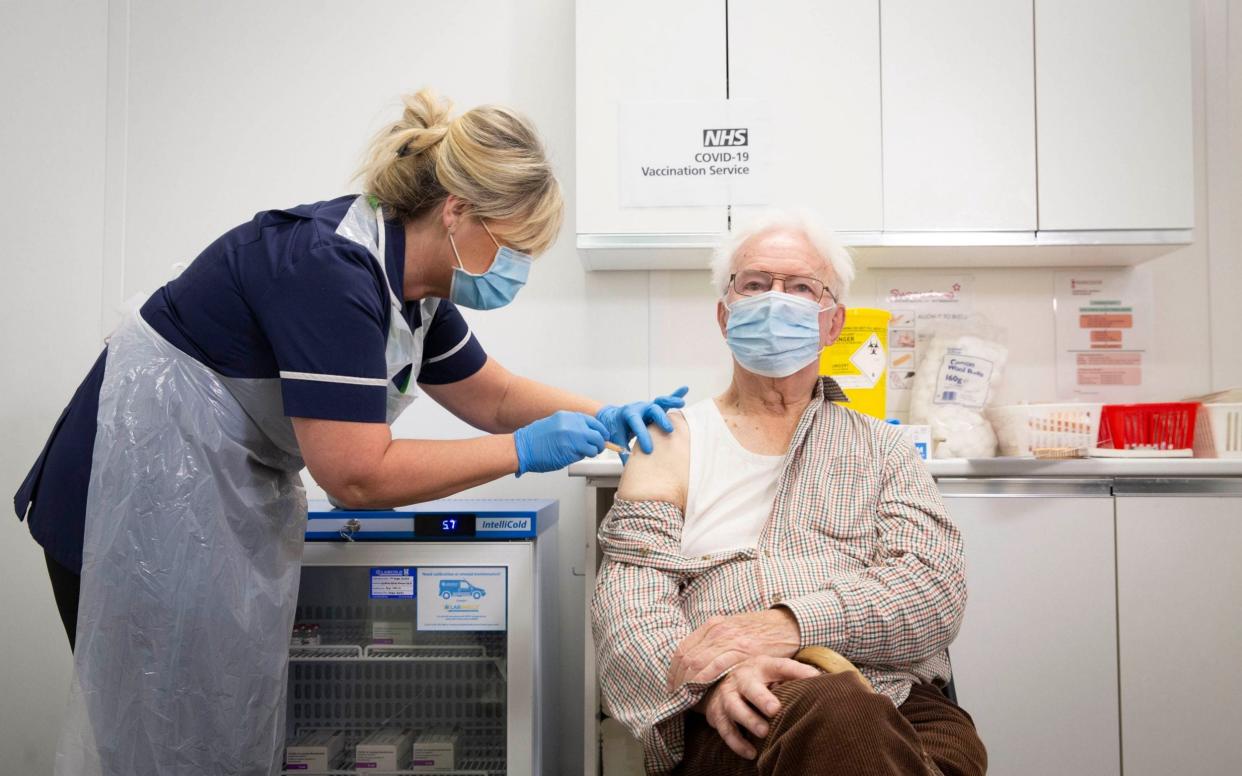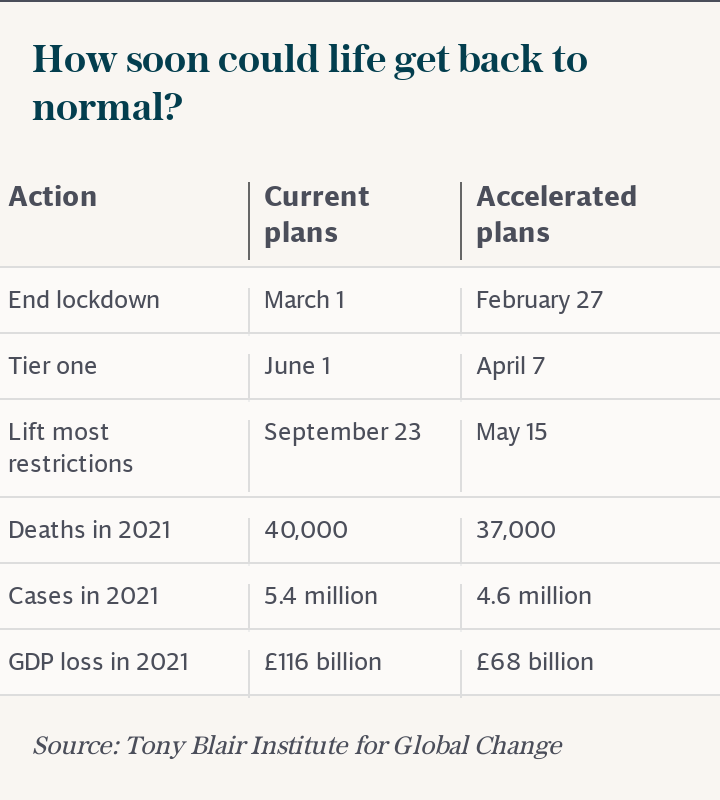Lockdown could be over by May if vaccinations speed up, says Tony Blair

- Oops!Something went wrong.Please try again later.

Most lockdown restrictions could be lifted by the middle of May if the UK speeds up its vaccination programme and immunises 600,000 people every day by March, a new analysis has shown.
The paper, from the Tony Blair Institute for Global Change, shows that on the UK’s current immunisation timeline restrictions will not be able to be fully lifted until mid September.
But if the number of vaccinations increases to 500,000 a day by February and 600,000 by March life could get back to normal by mid May.
In a foreword to the report Mr Blair said: “The faster we vaccinate, the sooner we end lockdown and prevent further mutations.”
Last week Matt Hancock, the health secretary, pledged that the UK would vaccinate 12.5 million people by the middle of February - around 350,000 people a day.
Latest figures from NHS England show that in recent days around 300,000 people a day have been vaccinated, rising from around 170,000.
But there have been concerns over vaccine supplies with ministers unwilling to reveal how many doses the UK has for fear of jeopardising any future orders.
However, the report authors say that discussions with manufacturers and performance in other countries suggest that it will soon be possible to increase the pace of vaccination. Plans for 24/7 vaccination centres could also help speed up the roll out.

Israel, currently top of the global league table for Covid vaccination, has been immunising one per cent of its population every day since the start of this year - equivalent to 700,000 people a day in the UK.
Ian Mulheirn, author of the report, said: “The current pace of rollout is an impressive operational achievement by the NHS. But the economic, social and health damage being done by the restrictions required to keep the new strain of the virus under control is severe.
“Our analysis is not intended as criticism of the programme to date, but an illustration of the prize if we succeed in speeding up that distribution. If rates of supply allow, we should do everything possible to speed up the vaccination rollout.”
Mr Mulheirn added: “If the government can find ways to accelerate supply, it will pay dividends in lives saved and economic growth.”
Researchers used the institute’s Covid cost model which links the spread of the virus to the number of infections and performance of the economy.
The model shows that under the current vaccine timeline the current lockdown will lift on March 1. But under an accelerated vaccine rollout that would end on February 27.
And if the immunisation programme were to speed up, the country could return to tier one restrictions on April 7 and almost all restrictions could be lifted by May 15.
On the current trajectory tier one restrictions will resume on June 1 and all restrictions will end by September 23.
As well as enabling people to resume normal life an accelerated vaccination programme will also save lives and money.
The model shows that under current vaccination plans 40,000 people will die, compared to 37,000 if vaccines are administered more quickly. There would also be a million fewer cases.
An accelerated roll out could also save £50 billion in lost economic activity - GDP loss would be £68 billion, compared to £116 billion.
The model assumes that the current lockdown will lift when cases are down to less than 20,000 a day and deaths less than 100 a day. Return to tier one restrictions could occur when the number of daily infections returns to the level of the summer - around 1,000 a day. And life could return to normal when 70 per cent of the population is vaccinated.
Mr Blair welcomed the ramping up of the vaccination programme and added: “This paper shows what the path back to normality might look like and the difference that accelerating the vaccination programme would make.”
Protect yourself and your family by learning more about Global Health Security

